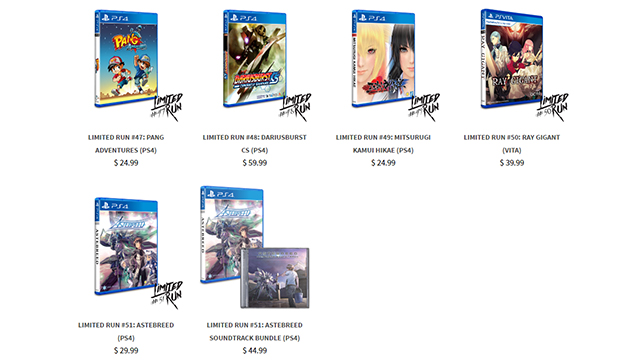In light of recent news that GameStop will be closing over 100 stores in response to recent fiscal woes and a general dip in physical games sales, it begs a question that won’t seem to go away: how does the future look for physical game releases?
It’s a question that’s been toyed with endlessly since the dawn of digital download stores, so the goal here is not to spell doom and gloom for a method of media delivery that, like print magazines, will find a way to survive even if it faces what at first appears to be an extinction. Furthermore, physical gaming's lifecycle is not yet on the brink of such disaster either. Even so, its trajectory has been interesting, and warrants a second look.
Personally, in particular sometime toward the end of the PS3 era, I’d reached a point of being fully invested in digital downloads and hadn’t purchased a physical game in several years. There were a few reasons for this; at the time I was doing a very hefty amount of review work for several websites, and as such was receiving download codes at breakneck pace, a trend which ultimately drove me to fit my PS3 with a 2TB hard drive. This was in addition to games I’d purchase of my own accord, which tended to be downloads as well once my attitude evolved toward “well I have the disk space, so why not?”

For whatever reason, when it comes to downloads vs. physical there’s definitely something awkward or uncomfortable about having a foot in each camp. If you’ve committed to physical purchases for a particular console, getting a stray download (or in my case review code) copy can really throw off your groove, especially if you’re displaying your games as decoration in your home, dedicated shelf-space ready and waiting. Conversely, if you’ve given up or are short on space and amass a digital library, it’s awkward when a sole physical version finds its way to your hands. “Where do I even put this? Should I just leave the disc in the console?” Such is the impasse met when collecting high volumes of videogames.
My default mode currently is physical games, but as is clear, I prefer to be in one mode or the other at a given time. If GameStop were to suddenly vanish, what’s less clear is what that would do for the physical market. On one hand, the droves of game-players who don’t necessarily identify as “gamers” (ie, just swing by the local GameStop for the latest big title, similar to a casual moviegoer) probably wouldn’t be all that irked about it; just like the decline of Blu-ray, they’d likely invest in a meaty hard drive or adopt a streaming service (if the latter ever becomes more prevalent for games that is) and get with the 21st century. No harm done.
 Anyone remember GMR? It was the official EBGames mag before a merger where GameInformer took priority.
Anyone remember GMR? It was the official EBGames mag before a merger where GameInformer took priority.On the other hand, there are things keeping physical games alive in said scenario. In the past year Amazon began a permanent discount on games for Prime members: 20% off all physical pre-orders. Why or how they can manage this as a viable strategy is beyond me, but I haven’t questioned it; in fact, it’s Amazon’s move, not the continued existence of GameStop of PowerUp Rewards, that yanked me back from my digital ways and into the fold of physical plastic and discs once more. It’s a horrible personal decision given the size of my apartment, but who can say no to guaranteed savings?
As such I’m back on the physical train for current and new consoles, with several years’ worth of shelf-space cleared for the oncoming cascade of Nintendo Switch software at the very least. Mercifully its carts and cases are Vita-sized, something I find particularly endearing for a device functioning as a home console in addition to its handheld capability. I’m living proof that it’s tough to permanently part with physical games, but that’s mainly because of the case, artwork, and manual; discs I have zero attachment too. Plus, print manuals are largely being phased out nowadays anyway.

There are outfits that bring smaller titles a physical release affordably, and in a true apocalypse scenario I expect the demand for operations like Limited Run Games would double and triple if mass-production of physical releases swiftly went kaput. I mentioned print magazines earlier, and despite what’s been seen as a thorough extinction of physical gaming mags over the course of the last two decades, some have come about that fare better than would ever be possible clinging to a dying model. Keep in mind, once viable support is established, these operations don’t have to deal with the headaches of SEO or ad clickthrough either. As with anything pros and cons exist, but should physical games see a decline that actually threatens their existence, it will be interesting to witness the creative means of preserving them that inevitably crop up.
In the meantime, GameStop probably isn’t going out of business soon, and other retailers beyond Amazon have crafted similar incentives that should keep real-life objects in fashion for the foreseeable future. If digital games were delivered with schematics usable by 3D printers, making homemade physical versions possible, it’d be a different story. Realistically though, that’s probably more of a next-century scenario. By then I fully expect “physical game” to mean “a chip I can insert into my onboard brain VR” anyway.







